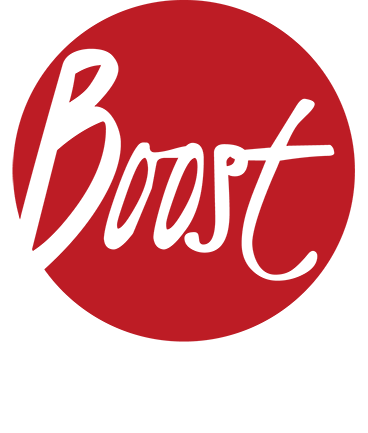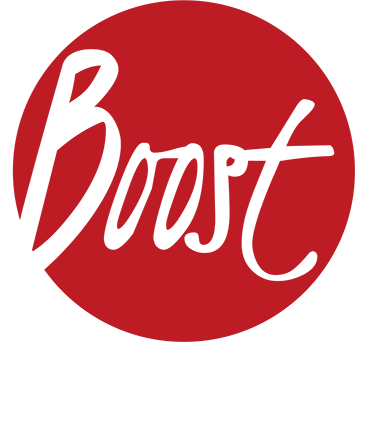The Social Mobility Index & Social Mobility Awards

Amber Campbell
Managing Consultant, Boost
Last updated 20/01/2026
Social Mobility – why should your socioeconomic background shape your future?
Climbing the social ladder, the class divide, blue collar vs. white collar work: these colloquialisms outline the deep-seated difficulties in social mobility that have built up in our society over many decades.
Ronnie Barker, Ronnie Corbett and John Cleese once created a sketch to highlight (with perfect comedic insight) the unspoken implications of the class system, as summarised below:
Cleese: ‘I look down on him because I am upper class.’
Barker: ‘I look up to him because he is upper-class; but I look down on him because he is lower-class. I am middle-class.’
Corbett: ‘I know my place. I look up to them both; but while I am poor, I am honest, industrious and trustworthy. Had I the inclination, I could look down on them. But I don’t.’
Social mobility refers to the ability of individuals or groups to move within or between pre-defined social strata. This movement can be vertical (a change in social status or economic position) or horizontal (movement within the same social level). It is also a key indicator of a society’s health and fairness, revealing the extent to which individuals have equal opportunities for achieving success regardless of their background.
Social Mobility Factors
In the UK, several factors influence the degree of social mobility, including:
- Education – often considered the most critical factor in promoting social mobility. Access to quality education can provide individuals with the skills and knowledge needed to improve their socioeconomic status. However, disparities in educational opportunities can hinder mobility for certain groups. Employer school outreach programmes that are set up to address issues such as the attainment gap between private and state school students play a significant role in advancing mobility. Ensuring equal access to quality education is fundamental for enhancing social mobility: this includes addressing disparities in funding, resources, and opportunities for underserved communities.
- Government and employment policies/initiatives – Government policies such as taxation, social welfare programmes, and labour market regulations (e.g., National Living Wage) are also important factors in shaping social mobility. Employer policies that promote equal and fair treatment of employees, progression opportunities that are open to all, and succession planning are also necessary.
- Community support – the networks, relationships, and social norms that facilitate cooperation and mutual support within a community. Individuals with strong social capital often have better access to opportunities and resources that can aid upward mobility. Employer initiatives to boost community engagement and social participation/collaboration can prove meaningful in improving social capital.
- Location – Social mobility can vary widely across different regions of the UK. Areas with higher levels of economic deprivation often face greater challenges in achieving upward mobility, and targeted regional development programmes can help address these disparities.
- Discrimination and bias – based on race, gender, ethnicity, or other protected characteristics can create barriers to social mobility. Addressing these issues is crucial in fostering a more equitable society. Implementing policies and practices that combat discrimination and promote diversity/inclusion are essential for removing barriers to social mobility. This includes enforcing anti-discrimination laws and engendering inclusive environments in educational institutions and workplaces.
Measuring social mobility
Employers are increasingly looking to measure their effectiveness in promoting social mobility through analysis of their employees’ backgrounds, including their education history and that of their parents. Intergenerational mobility assesses the extent to which individuals’ economic or social status differs from that of their parents: high intergenerational mobility indicates that individuals have a greater chance of improving their socioeconomic status relative to their parents.
Social mobility is a complex and multifaceted issue that requires a concerted effort from governments, institutions, and individuals alike to address. By understanding the factors that influence mobility and implementing policies that promote equality and opportunity, societies can create environments where individuals can achieve their full potential irrespective of their background. Improving social mobility is not only a matter of fairness, but also essential for the overall health and prosperity of a society.
Breaking the barriers to social mobility
There are a number of awards to consider which celebrate achievements in promoting social mobility in the workplace, including:

“Improving social mobility is not only a matter of fairness, but also essential for the overall health and prosperity of a society.”
The Social Mobility Employer Index
Launched in 2017 by the Social Mobility Foundation, the Index provides valuable insights into the effectiveness of employers’ strategies and highlights best practices for promoting social mobility within the workplace. Companies that perform well in the Index are recognised for their commitment to creating more inclusive and equitable employment opportunities.
Employers interested in participating in the Social Mobility Employer Index must go through a lengthy and comprehensive entry process. The application form comprises eight sections of in-depth data and commentary, with detailed information about policies and practices aimed at promoting social mobility. This includes outreach programmes (both educational and community), recruitment processes, and progression opportunities for employees from lower socioeconomic backgrounds.
Once the application is submitted, it is reviewed by an independent panel of experts, who assess the effectiveness and impact of the company’s initiatives. The review criteria include the extent to which the company is committed to improving social mobility, the innovative approaches it employs, and the measurable outcomes of its efforts.
Successful applicants are then ranked in the top 75 based on their performance across these criteria, and the results are published in the annual Social Mobility Employer Index report. This publication not only recognises companies that excel in promoting social mobility but also serves as a valuable resource for other organisations looking to improve their practices and create more inclusive employment opportunities.
Entries open in spring and usually close in June. https://www.socialmobility.org.uk/employerindex
The King’s Award for Enterprise – promoting opportunity through social mobility
The King’s Award for Enterprise (previously known as the Queen’s Award for Enterprise) includes a category dedicated to social mobility. This prestigious award recognises UK businesses that have demonstrated excellence in promoting social mobility within their operations. Companies are assessed on various factors including the accessibility of their employment opportunities, their support for employee progression, and their efforts to engage with/uplift individuals from disadvantaged backgrounds.
Winning this award not only brings national recognition but also inspires other businesses to adopt similar practices, contributing to a broader culture of inclusivity and social progress. Recipients of the award showcase innovative approaches to tackling social mobility challenges, setting benchmarks for others to follow.
By highlighting and rewarding these efforts, the King’s Award for Enterprise for Social Mobility plays a crucial role in cultivating a business environment that values and actively promotes equal opportunities for all.
Deadline is usually around 12th September. https://www.gov.uk/kings-awards-for-enterprise
The Social Mobility Awards (SOMOs)
The Social Mobility Awards (SOMOs) are another consequential initiative dedicated to recognising and celebrating organisations and individuals championing social mobility. Launched in 2017, the SOMOs aim to raise awareness of social mobility issues and inspire others to take action by showcasing outstanding achievements and innovations in this field.
The awards are open to businesses, educational institutions, and individuals across the UK, celebrating efforts in various categories including recruitment, progression, innovation, and leadership. Each year, a distinguished panel of judges evaluates the entries based on their impact, implementation, and sustainability.
Winning a Social Mobility Award is a testament to an organisation’s or individual’s commitment to creating equitable opportunities and encouraging an inclusive environment. This recognition not only celebrates the winner’s achievements but also serves as a powerful motivator for others to adopt and implement best practices.
The awards open for nominations on 28 April 2025 and close on 27 June. If you are entering the Social Mobility Employer Index, these awards tie in perfectly with the timings and could well become an extra badge of honour for the work you are doing. https://www.somo.uk/
Through initiatives like the Social Mobility Employer Index, the King’s Award for Enterprise for Social Mobility, and the Social Mobility Awards, the UK continues to make strides towards a more inclusive and equitable society. By honouring and promoting these efforts, we can inspire broader participation and drive meaningful change that benefits everyone.
Here are some other awards and indices to consider that feature social mobility categories:
We can’t guarantee 100% accuracy (we try our best!) so always visit the individual awards’ websites for the latest information.
| Award name | Deadline Date | Awarding Date | Industry | Region |
| Engineering Talent Awards | 2nd Feb | ~13th Sep | Construction & Architecture | UK |
| People in Law Awards | 13th Feb | 7th May | Legal Services | UK |
| UK Company Culture Awards | 19th Feb | 7th May | HR & Training | UK |
| Aspiration Awards | 27th Feb | ~6th May | Education | UK |
| FTAdviser Workplace Excellence Awards | 27th Feb | 18th Jun | Financial Services | UK |
| Institute of Student Employers ISE Awards | 1st Mar | 23rd Jun | HR & Training | UK |
| Student Social Mobility Awards | 12th Mar | 8th Jul | Education | UK |
| Advancing Healthcare Awards | 16th Mar | 19th Jun | Health & Social Care | UK |
| Women in Utilities Awards | 19th Mar | 3rd Jul | Energy & Utilities | UK |
| Quality Professionals Awards for FE and Employability | 20th Mar | 19th Jun | Education | UK |
| Top 50 SME Apprenticeship Employers | 20th Mar | ~25th Jul | HR & Training | UK |
| Property Week Inspiring Women in Property | 31st Mar | 22nd Sep | Planning & Property | UK |
| The Sunday Times Top 100 Apprenticeship Employers | ~17th Apr | ~10th Jul | HR & Training | UK |
| UK Business Awards (The Dons) | 24th Apr | 2nd Jul | Business | UK |
| National Apprenticeship and Skills Awards | ~29th May | ~26th Nov | HR & Training | UK |
| Social Mobility Employer Index | ~9th Jun | ~15th Oct | HR & Training | UK |
| UK Social Mobility Awards | 26th Jun | 6th Oct | HR & Training | UK |
| Inclusive Awards | ~14th Jul | ~27th Nov | HR & Training | UK |
| Onvero Inclusivity Excellence Awards | ~23rd Jul | ~30th Nov | HR & Training | UK |
| European Diversity Awards | ~1st Aug | ~7th Nov | HR & Training | Europe |
| The Times Top 100 Graduate Employers | ~5th Aug | ~1st Sep | HR & Training | UK |
| The Times Graduate Recruitment Awards | ~5th Aug | ~1st Sep | HR & Training | UK |
| The King's Awards for Enterprise | ~9th Sep | ~6th May | Business | UK |
| RAD Awards (Recruitment Advertising) | ~26th Sep | 29th Jan | HR & Training | UK |
| Professional Services Management Excellence Awards | ~31st Oct | 26th Mar | Business Leaders | International |
| British Diversity Awards | ~28th Nov | 25th Mar | HR & Training | UK |
| Women and Diversity in Law Awards | ~4th Dec | 28th Apr | Legal Services | UK |
| Young Rail Professionals Award | ~6th Dec | ~20th Mar | Transport & Logistics | UK |
| Student Nursing Times Awards | ~12th Dec | 24th Apr | Health & Social Care | UK |
| Apprenticeship Guide Awards | ~19th Dec | 30th Apr | HR & Training | UK |
| Equity, Diversity and Inclusion Heroes Awards | ~20th Dec | ~3rd Mar | HR & Training | UK |
| Springboard Awards for Excellence | 9th Jan | 30th Apr | Hospitality Sport & Leisure | UK |
| TARGETjobs Undergraduate of the Year Awards | 26th Jan | ~29th Apr | HR & Training | UK |
| TARGETjobs National Graduate Recruitment Awards | 30th Jan | 16th Apr | HR & Training | UK |
Help entering the social mobility employer index and social mobility awards
Entering any awards can be time-consuming, and entries are often over 100 pages of content.
We’ve been helping businesses enter and climb through the Social Mobility Employers Index and other DEI rankings since 2006 – some up more than 50 places in a year into the top 10 – and helping our clients to win sector and industry-wide DEI awards. Not only can we do all the work on the entries, but we also continue on the journey with you, suggesting learnings to implement either for the entry or subsequently for the following year – helping continuous improvement in your social mobility strategy and initiatives. We are more experienced than any other agency in the world when it comes to these awards and rankings.
We can also help you gather the necessary data and measurable impacts to ensure your entry rises above the crowd. Through our award-winning sister company Boost Evaluation we can offer a range of services, including employee engagement surveys, research and a real-time DEI tool. Visit https://boost-evaluation.co.uk/
I have personally helped companies enter and win many of the awards outlined above and would be happy to give you a call to help you double-check your chances of success and explain our pricing options. You can email me directly at amber.campbell@boost-awards.co.uk
I look forward to hearing from you.
Amber
Boost – a helping hand entering awards
Boost is the world’s first and largest award entry consultancy, having helped clients (from SMEs to multinationals) win over 2,000 credible business awards, indices and rankings. Increase your chances of success significantly – call Boost on +44(0)1273 258703 today for a no-obligation chat about awards.
(C) This article was written by Amber Campbell and is the intellectual property of award entry consultants Boost Awards
The Social Mobility Index & Social Mobility Awards

Amber Campbell
Managing Consultant, Boost
Last updated 20/01/2026
Social Mobility – why should your socioeconomic background shape your future?
Climbing the social ladder, the class divide, blue collar vs. white collar work: these colloquialisms outline the deep-seated difficulties in social mobility that have built up in our society over many decades.
Ronnie Barker, Ronnie Corbett and John Cleese once created a sketch to highlight (with perfect comedic insight) the unspoken implications of the class system, as summarised below:
Cleese: ‘I look down on him because I am upper class.’
Barker: ‘I look up to him because he is upper-class; but I look down on him because he is lower-class. I am middle-class.’
Corbett: ‘I know my place. I look up to them both; but while I am poor, I am honest, industrious and trustworthy. Had I the inclination, I could look down on them. But I don’t.’
Social mobility refers to the ability of individuals or groups to move within or between pre-defined social strata. This movement can be vertical (a change in social status or economic position) or horizontal (movement within the same social level). It is also a key indicator of a society’s health and fairness, revealing the extent to which individuals have equal opportunities for achieving success regardless of their background.
Social Mobility Factors
In the UK, several factors influence the degree of social mobility, including:
- Education – often considered the most critical factor in promoting social mobility. Access to quality education can provide individuals with the skills and knowledge needed to improve their socioeconomic status. However, disparities in educational opportunities can hinder mobility for certain groups. Employer school outreach programmes that are set up to address issues such as the attainment gap between private and state school students play a significant role in advancing mobility. Ensuring equal access to quality education is fundamental for enhancing social mobility: this includes addressing disparities in funding, resources, and opportunities for underserved communities.
- Government and employment policies/initiatives – Government policies such as taxation, social welfare programmes, and labour market regulations (e.g., National Living Wage) are also important factors in shaping social mobility. Employer policies that promote equal and fair treatment of employees, progression opportunities that are open to all, and succession planning are also necessary.
- Community support – the networks, relationships, and social norms that facilitate cooperation and mutual support within a community. Individuals with strong social capital often have better access to opportunities and resources that can aid upward mobility. Employer initiatives to boost community engagement and social participation/collaboration can prove meaningful in improving social capital.
- Location – Social mobility can vary widely across different regions of the UK. Areas with higher levels of economic deprivation often face greater challenges in achieving upward mobility, and targeted regional development programmes can help address these disparities.
- Discrimination and bias – based on race, gender, ethnicity, or other protected characteristics can create barriers to social mobility. Addressing these issues is crucial in fostering a more equitable society. Implementing policies and practices that combat discrimination and promote diversity/inclusion are essential for removing barriers to social mobility. This includes enforcing anti-discrimination laws and engendering inclusive environments in educational institutions and workplaces.

“Improving social mobility is not only a matter of fairness, but also essential for the overall health and prosperity of a society.”
Measuring social mobility
Employers are increasingly looking to measure their effectiveness in promoting social mobility through analysis of their employees’ backgrounds, including their education history and that of their parents. Intergenerational mobility assesses the extent to which individuals’ economic or social status differs from that of their parents: high intergenerational mobility indicates that individuals have a greater chance of improving their socioeconomic status relative to their parents.
Social mobility is a complex and multifaceted issue that requires a concerted effort from governments, institutions, and individuals alike to address. By understanding the factors that influence mobility and implementing policies that promote equality and opportunity, societies can create environments where individuals can achieve their full potential irrespective of their background. Improving social mobility is not only a matter of fairness, but also essential for the overall health and prosperity of a society.
Breaking the barriers to social mobility
There are a number of awards to consider which celebrate achievements in promoting social mobility in the workplace, including:
The Social Mobility Employer Index
Launched in 2017 by the Social Mobility Foundation, the Index provides valuable insights into the effectiveness of employers’ strategies and highlights best practices for promoting social mobility within the workplace. Companies that perform well in the Index are recognised for their commitment to creating more inclusive and equitable employment opportunities.
Employers interested in participating in the Social Mobility Employer Index must go through a lengthy and comprehensive entry process. The application form comprises eight sections of in-depth data and commentary, with detailed information about policies and practices aimed at promoting social mobility. This includes outreach programmes (both educational and community), recruitment processes, and progression opportunities for employees from lower socioeconomic backgrounds.
Once the application is submitted, it is reviewed by an independent panel of experts, who assess the effectiveness and impact of the company’s initiatives. The review criteria include the extent to which the company is committed to improving social mobility, the innovative approaches it employs, and the measurable outcomes of its efforts.
Successful applicants are then ranked in the top 75 based on their performance across these criteria, and the results are published in the annual Social Mobility Employer Index report. This publication not only recognises companies that excel in promoting social mobility but also serves as a valuable resource for other organisations looking to improve their practices and create more inclusive employment opportunities.
Entries open in spring and usually close in June. https://www.socialmobility.org.uk/employerindex
The King’s Award for Enterprise – promoting opportunity through social mobility
The King’s Award for Enterprise (previously known as the Queen’s Award for Enterprise) includes a category dedicated to social mobility. This prestigious award recognises UK businesses that have demonstrated excellence in promoting social mobility within their operations. Companies are assessed on various factors including the accessibility of their employment opportunities, their support for employee progression, and their efforts to engage with/uplift individuals from disadvantaged backgrounds.
Winning this award not only brings national recognition but also inspires other businesses to adopt similar practices, contributing to a broader culture of inclusivity and social progress. Recipients of the award showcase innovative approaches to tackling social mobility challenges, setting benchmarks for others to follow.
By highlighting and rewarding these efforts, the King’s Award for Enterprise for Social Mobility plays a crucial role in cultivating a business environment that values and actively promotes equal opportunities for all.
Deadline is usually around 12th September. https://www.gov.uk/kings-awards-for-enterprise
The Social Mobility Awards (SOMOs)
The Social Mobility Awards (SOMOs) are another consequential initiative dedicated to recognising and celebrating organisations and individuals championing social mobility. Launched in 2017, the SOMOs aim to raise awareness of social mobility issues and inspire others to take action by showcasing outstanding achievements and innovations in this field.
The awards are open to businesses, educational institutions, and individuals across the UK, celebrating efforts in various categories including recruitment, progression, innovation, and leadership. Each year, a distinguished panel of judges evaluates the entries based on their impact, implementation, and sustainability.
Winning a Social Mobility Award is a testament to an organisation’s or individual’s commitment to creating equitable opportunities and encouraging an inclusive environment. This recognition not only celebrates the winner’s achievements but also serves as a powerful motivator for others to adopt and implement best practices.
The awards open for nominations on 28 April 2025 and close on 27 June. If you are entering the Social Mobility Employer Index, these awards tie in perfectly with the timings and could well become an extra badge of honour for the work you are doing. https://www.somo.uk/
Through initiatives like the Social Mobility Employer Index, the King’s Award for Enterprise for Social Mobility, and the Social Mobility Awards, the UK continues to make strides towards a more inclusive and equitable society. By honouring and promoting these efforts, we can inspire broader participation and drive meaningful change that benefits everyone.
Here are some other awards and indices to consider that feature social mobility categories:
We can’t guarantee 100% accuracy (we try our best!) so always visit the individual awards’ websites for the latest information.
| Award name | Deadline Date | Awarding Date | Industry | Region |
| Engineering Talent Awards | 2nd Feb | ~13th Sep | Construction & Architecture | UK |
| People in Law Awards | 13th Feb | 7th May | Legal Services | UK |
| UK Company Culture Awards | 19th Feb | 7th May | HR & Training | UK |
| Aspiration Awards | 27th Feb | ~6th May | Education | UK |
| FTAdviser Workplace Excellence Awards | 27th Feb | 18th Jun | Financial Services | UK |
| Institute of Student Employers ISE Awards | 1st Mar | 23rd Jun | HR & Training | UK |
| Student Social Mobility Awards | 12th Mar | 8th Jul | Education | UK |
| Advancing Healthcare Awards | 16th Mar | 19th Jun | Health & Social Care | UK |
| Women in Utilities Awards | 19th Mar | 3rd Jul | Energy & Utilities | UK |
| Quality Professionals Awards for FE and Employability | 20th Mar | 19th Jun | Education | UK |
| Top 50 SME Apprenticeship Employers | 20th Mar | ~25th Jul | HR & Training | UK |
| Property Week Inspiring Women in Property | 31st Mar | 22nd Sep | Planning & Property | UK |
| The Sunday Times Top 100 Apprenticeship Employers | ~17th Apr | ~10th Jul | HR & Training | UK |
| UK Business Awards (The Dons) | 24th Apr | 2nd Jul | Business | UK |
| National Apprenticeship and Skills Awards | ~29th May | ~26th Nov | HR & Training | UK |
| Social Mobility Employer Index | ~9th Jun | ~15th Oct | HR & Training | UK |
| UK Social Mobility Awards | 26th Jun | 6th Oct | HR & Training | UK |
| Inclusive Awards | ~14th Jul | ~27th Nov | HR & Training | UK |
| Onvero Inclusivity Excellence Awards | ~23rd Jul | ~30th Nov | HR & Training | UK |
| European Diversity Awards | ~1st Aug | ~7th Nov | HR & Training | Europe |
| The Times Top 100 Graduate Employers | ~5th Aug | ~1st Sep | HR & Training | UK |
| The Times Graduate Recruitment Awards | ~5th Aug | ~1st Sep | HR & Training | UK |
| The King's Awards for Enterprise | ~9th Sep | ~6th May | Business | UK |
| RAD Awards (Recruitment Advertising) | ~26th Sep | 29th Jan | HR & Training | UK |
| Professional Services Management Excellence Awards | ~31st Oct | 26th Mar | Business Leaders | International |
| British Diversity Awards | ~28th Nov | 25th Mar | HR & Training | UK |
| Women and Diversity in Law Awards | ~4th Dec | 28th Apr | Legal Services | UK |
| Young Rail Professionals Award | ~6th Dec | ~20th Mar | Transport & Logistics | UK |
| Student Nursing Times Awards | ~12th Dec | 24th Apr | Health & Social Care | UK |
| Apprenticeship Guide Awards | ~19th Dec | 30th Apr | HR & Training | UK |
| Equity, Diversity and Inclusion Heroes Awards | ~20th Dec | ~3rd Mar | HR & Training | UK |
| Springboard Awards for Excellence | 9th Jan | 30th Apr | Hospitality Sport & Leisure | UK |
| TARGETjobs Undergraduate of the Year Awards | 26th Jan | ~29th Apr | HR & Training | UK |
| TARGETjobs National Graduate Recruitment Awards | 30th Jan | 16th Apr | HR & Training | UK |
Help entering the social mobility employer index and social mobility awards
Entering any awards can be time-consuming, and entries are often over 100 pages of content.
We’ve been helping businesses enter and climb through the Social Mobility Employers Index and other DEI rankings since 2006 – some up more than 50 places in a year into the top 10 – and helping our clients to win sector and industry-wide DEI awards. Not only can we do all the work on the entries, but we also continue on the journey with you, suggesting learnings to implement either for the entry or subsequently for the following year – helping continuous improvement in your social mobility strategy and initiatives. We are more experienced than any other agency in the world when it comes to these awards and rankings.
We can also help you gather the necessary data and measurable impacts to ensure your entry rises above the crowd. Through our award-winning sister company Boost Evaluation we can offer a range of services, including employee engagement surveys, research and a real-time DEI tool. Visit https://boost-evaluation.co.uk/
I have personally helped companies enter and win many of the awards outlined above and would be happy to give you a call to help you double-check your chances of success and explain our pricing options. You can email me directly at amber.campbell@boost-awards.co.uk
I look forward to hearing from you.
Amber
Boost – a helping hand entering awards
Boost is the world’s first and largest award entry consultancy, having helped clients (from SMEs to multinationals) win over 2,000 credible business awards, indices and rankings. Increase your chances of success significantly – call Boost on +44(0)1273 258703 today for a no-obligation chat about awards.
(C) This article was written by Amber Campbell and is the intellectual property of award entry consultants Boost Awards
Looking for awards to enter?
Sign up for our free email deadline reminders to make sure you never miss an awards deadline.
Every month you will receive a comprehensive list of upcoming awards deadlines (in the next two months) organised by industry sector.






